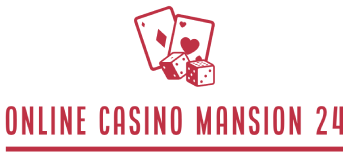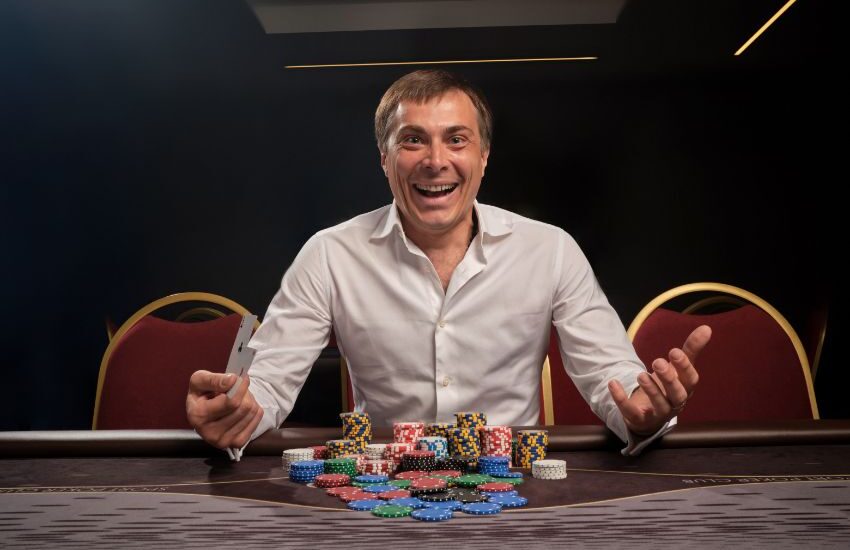When participating in a game of blackjack, players are not only contending with the dealer but also with various cognitive and emotional challenges.
Cognitive biases, such as confirmation bias, where individuals seek information that supports their existing beliefs, and the gambler’s fallacy, which is the mistaken belief that past events influence future outcomes in random games, can significantly distort judgment.
Emotional regulation plays a crucial role in decision-making at the blackjack table. Factors such as stress, anxiety, and financial strain can hinder rational thought processes, leading to suboptimal choices.
Effective performance in blackjack requires not only a well-founded strategy based on statistical probabilities but also an understanding and management of these psychological elements.
Research indicates that players who recognize and mitigate the effects of cognitive biases and emotional disturbances tend to make more informed decisions, which can contribute to improved outcomes in the game.
Understanding how mental factors influence behavior is essential for those looking to enhance their performance in blackjack.
Cognitive Biases in Play
Cognitive biases significantly impact the way individuals approach and play blackjack. Understanding these biases can enhance decision-making processes during gameplay. The following are key cognitive biases relevant to blackjack:
-
Confirmation Bias: Players may tend to concentrate on information that aligns with their existing beliefs about the game, while disregarding evidence that contradicts those beliefs. This bias can lead to flawed decision-making.
-
Gambler’s Fallacy: This bias involves the belief that future outcomes are affected by previous events. In blackjack, this misconception may cause players to assume that a certain outcome is “due” after a series of losses or wins, despite the fact that each hand is statistically independent.
-
Anchoring: Decisions in blackjack can be swayed by initial information, such as the dealer’s face-up card. Players may overvalue this information when making subsequent decisions, which can distort their judgment.
-
Overconfidence: Players may overestimate their ability to predict the outcomes of hands. This overconfidence can lead to riskier betting behavior and potentially larger losses.
Awareness of these cognitive biases is essential for maintaining objectivity during gameplay. By recognizing how these biases operate, players can mitigate their effects, thereby improving their decision-making efficiency and overall strategy in blackjack.
Emotional Control Tactics
Maintaining emotional control is a critical factor in achieving success in blackjack. Emotional responses such as frustration or excitement can significantly impair decision-making abilities, leading to suboptimal choices. Below are several strategies that can aid in maintaining composure during gameplay:
-
Set Limits: Establishing a predetermined loss limit is crucial. This approach helps mitigate the risk of excessive losses and encourages disciplined play.
-
Take Breaks: Periodically stepping away from the table allows for mental clarity. Breaks can provide an opportunity to reassess strategies and emotions.
-
Stay Focused: Concentrating on the mechanics of the game rather than potential outcomes can reduce anxiety. This focus aids in making rational, informed decisions based on the current game state.
-
Breathe: Engaging in deep-breathing exercises can effectively manage stress levels. Controlled breathing techniques promote relaxation and can help in regaining focus.
-
Practice: Regular practice can enhance familiarity with the game and its inherent ups and downs. Increased experience typically leads to improved emotional regulation during play.
Implementing these tactics can contribute to a more rational approach in blackjack, ultimately improving the overall gaming experience.
Reading Your Opponents
Reading opponents in blackjack can provide valuable insights that enhance strategic decision-making. By observing the behaviors and betting patterns of other players, one can gather information that may inform their own gameplay.
Key aspects to consider include:
-
Betting Changes: Noticing sudden fluctuations in a player’s bets can provide clues about their hand strength. A significant increase in a bet may suggest confidence in a strong hand, while a decrease could indicate caution in response to a weak hand.
-
Body Language: Players’ physical cues, such as fidgeting or a lack of eye contact, may indicate uncertainty or a lack of confidence in their hand. These non-verbal signals can be useful in assessing the psychological state of an opponent.
-
Timing: The speed at which a player makes decisions can also be revealing. Quick, decisive actions may imply a strong hand, whereas prolonged deliberation might suggest uncertainty or a weak position.
Decision-Making Strategies
Understanding your opponents’ behaviors and betting patterns can provide valuable insights, but the decision-making strategies you employ are equally crucial. To improve your decision-making in gaming contexts, consider the following approaches:
-
Know Basic Strategy: Familiarize yourself with the optimal plays for each hand in relation to the dealer’s upcard. This knowledge can help minimize the house edge and increase your chances of success.
-
Card Counting: Monitoring the ratio of high to low cards can inform your betting adjustments. While this practice isn’t illegal, it’s often discouraged in casino environments.
-
Bankroll Management: Establishing clear limits for both wins and losses is essential. This strategy helps mitigate emotional decision-making and ensures that you manage your funds responsibly.
-
Stay Consistent: Adhering to your established strategy is important, even in the face of losing streaks. Avoiding impulsive bets can prevent further losses and maintain your overall strategy.
-
Practice: Engaging in regular gameplay can enhance your skills and build confidence over time.
Implementing these strategies can lead to more informed and effective gameplay decisions.
The Role of Stress
Stress significantly influences performance at the blackjack table. Elevated stress levels can impair decision-making abilities, resulting in impulsive choices, such as hitting when one should stand or the opposite. Stress can also detract from focus, increasing the likelihood of errors.
Several factors contribute to stress in a gambling environment:
-
Financial Pressure: Concerns regarding monetary losses can elevate stress levels, impacting overall performance.
-
Time Constraints: A sense of urgency can induce anxiety, further affecting decision-making.
-
Performance Anxiety: The apprehension associated with making incorrect moves can diminish concentration and strategic thinking.
Effective stress management techniques include:
-
Deep Breathing: This practice can help alleviate tension and promote a state of calm.
-
Taking Breaks: Periodically stepping away from the game allows for mental reset, which can enhance focus upon return.
-
Setting Limits: Establishing a budget in advance and adhering to it can mitigate financial-related stress, allowing for a more composed approach to the game.
Social Dynamics at the Table
Engaging with others at the blackjack table can significantly influence both your gaming experience and performance. The social dynamics present can shape your emotional state and decision-making process during the game. Here are some important factors to consider:
-
Communication: Interacting with fellow players can yield valuable insights into gameplay strategies. However, it’s advisable to limit the amount of personal information shared, as this can lead to distractions or misunderstandings.
-
Body Language: Paying attention to the body language of other players can provide indications of their confidence or anxiety levels. Subtle cues, such as posture or facial expressions, may offer insights into their current state of mind.
-
Etiquette: Adhering to table etiquette is essential for maintaining a positive environment. Criticizing the decisions made by other players can create tension and disrupt the overall atmosphere.
-
Group Dynamics: The collective mood at the table can fluctuate based on the outcomes of hands, influencing individual emotions. A winning streak may foster camaraderie, while a series of losses can lead to frustration or negativity.
Confidence and Overconfidence
Confidence is an important factor in blackjack as it influences decision-making and overall performance. When a player exhibits confidence, they’re typically able to make quicker and more decisive choices, which can enhance their chances of success.
However, it’s essential to recognize the distinction between confidence and overconfidence. Overconfidence can lead to increased risk-taking behaviors, such as placing larger bets than warranted or disregarding established strategies.
To maintain a balanced approach in blackjack, players should consider the following guidelines:
-
Adhere to Strategy: It’s advisable to consistently follow the basic blackjack strategy to minimize the likelihood of making irrational choices.
-
Understand Personal Limits: Establishing a budget and adhering to it can help prevent impulsive expenditures and ensure responsible gameplay.
-
Continuous Learning: Engaging in ongoing education about the game can contribute to skill improvement and a deeper understanding of game dynamics.
Developing Mental Toughness
Developing mental toughness in blackjack is important for maintaining focus and making sound decisions during high-pressure situations. Here are several strategies to enhance this aspect of your gameplay:
-
Maintain Composure: Engaging in practices such as deep breathing and mindfulness can help players manage stress and remain calm during critical moments.
-
Emphasize Strategy: It’s beneficial to concentrate on implementing a well-defined strategy rather than fixating on the outcome of each hand. This approach encourages a more analytical mindset.
-
Acknowledge Losses: Recognizing that losses are an inherent part of blackjack can help players remain resilient. Accepting this reality contributes to maintaining confidence and focus.
-
Manage Emotions: It’s crucial to regulate emotions, particularly feelings of frustration or disappointment, as they can influence decision-making negatively. Practicing emotional control can lead to better outcomes.
-
Engage in Regular Practice: Consistent practice is key to improving one’s ability to handle stressful scenarios. Familiarity with the game and its dynamics can enhance a player’s performance in high-pressure situations.
These strategies, when applied consistently, can assist players in developing the mental toughness needed to succeed in blackjack.
Frequently Asked Questions
What Is the Origin and History of Blackjack?
You’re curious about blackjack’s origin. It dates back to French casinos in the 1700s, where it was called “Vingt-et-Un” (21). The game evolved in America, gaining popularity and eventually becoming the blackjack you know today.
How Does Card Counting Work in Blackjack?
Card counting works by tracking high and low cards dealt to adjust your bets. You assign values to cards, keep a running total, and bet higher when the count favors you, giving you a statistical edge over the house.
What Are the Basic Rules for Playing Blackjack?
You aim to beat the dealer’s hand without exceeding 21. Each player gets two cards, and you can hit to get more cards or stand to keep your total. Aces are 1 or 11, face cards are 10.
How Do Casino Rules Vary for Blackjack in Different Regions?
You’ll notice casino rules for blackjack vary by region. In some places, dealers hit on soft 17, while others stand. Deck counts, surrender options, and payout ratios can differ, impacting your strategy and potential winnings.
What Are Some Popular Blackjack Variations and Their Unique Rules?
You will discover popular blackjack variations like Spanish 21, where all 10s are removed, and Blackjack Switch, where you can swap cards between two hands. Each variation has its own unique rules that keep the game interesting.
Conclusion
In blackjack, understanding cognitive biases, managing emotions, and reading opponents are vital. Effective decision-making strategies, stress control, and social dynamics at the table enhance your gameplay. Confidence must be balanced to avoid overconfidence, and mental toughness is key for long-term success. By consistently applying strategies, staying self-aware, and continuously learning, you can improve your performance and enjoyment of the game. Remember, a balanced approach is essential for mastering blackjack.

